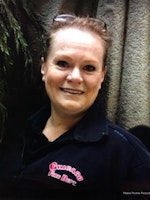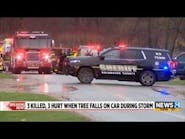The field of firefighting and EMS has a special quality that sets it apart from others: the idea of referring to a department as “family.” This concept of family is built on the foundation of mentorship, which helps to create strong bonds that can last for many years.
Watch/listen/learn
Lessons in the fire academy involve learning from a book and theory. However, no amount of that can replace physical education—for example, how to use equipment and secure it properly and how to breathe through a face mask. No book can prepare you to run up five flights of smokey stairs with all of the equipment that’s needed to battle whatever you find. These are abilities that are acquired through demonstration and repeated drills. When it comes to EMTs, the practice of assessment and bleeding control are among numerous areas of patient care. Life lessons represent a different form of education. This passive learning is the watch/listen/learn method.
A most memorable moment for me that led to real-life teaching was my introduction years ago to the cook in a big city firehouse. He was the house treasurer as well as the house historian, a firefighter who was assigned to the fire company directly from the academy and spent most of his life in this specific company quarters. He knew when the firehouse was built and how many chiefs and company officers passed through. He was the wellspring of the life and legacy of the firehouse as well as a human encyclopedia who could whip anyone at “Jeopardy”.
At the time when I met the cook, he would be called the barn boss, a throwback to the days of yesteryear that had horse-drawn fire engines and when buckets of water were used to put out fires. The “BB” made sure that the team ran smoothly, meals were prepared, and equipment was checked and recorded in the journal. He was an unsung leader, an advisor and a teacher.
An indelible impression
To be candid, when I met the barn boss, it was a unique time in the fire service. The number of women who were entering the profession was increasing, and the layers of EMS in many fire departments were developing. Although the barn boss shared so much knowledge, he knew nothing about what it means to be an EMT. Nevertheless, on each EMS run, he held a supportive stance, with all of the equipment that we would need. He wasn’t required to get vitals, but he asked to be taught how to take blood pressure, so he could help. As much knowledge of all things fire department that he had, he was willing to be a student and to learn EMS things.
The barn boss became my mentor as a firefighter, but, in essence, he became my EMT mentee because of his interest in techniques that I taught him. He shared his wisdom and his willingness to grow. Every shift, as he drank his coffee, collected food club money and made the shopping list for the menu of the day, there was a security that you could set your watch to, a confidence that I have carried with me and paid forward when I had a candidate or a student intern. As a result, without realizing it at the time, he provided one of the most impressive lessons: Good mentors never really die. They live on in you and me.

Maggie Coen-Murphy
Maggie Coen-Murphy retired as an ambulance commander of the Chicago Fire Department (CFD) after serving more than 30 years. She graduated from the Chicago Citywide Colleges Paramedic Program and later earned her bachelor’s degree from the University of Phoenix. Coen-Murphy currently serves as a Silver Spanner paramedic and EMS education coordinator for the UChicago-Ingalls Paramedic Program. She is a committee member of the CFD Retiree Memorial organization.






